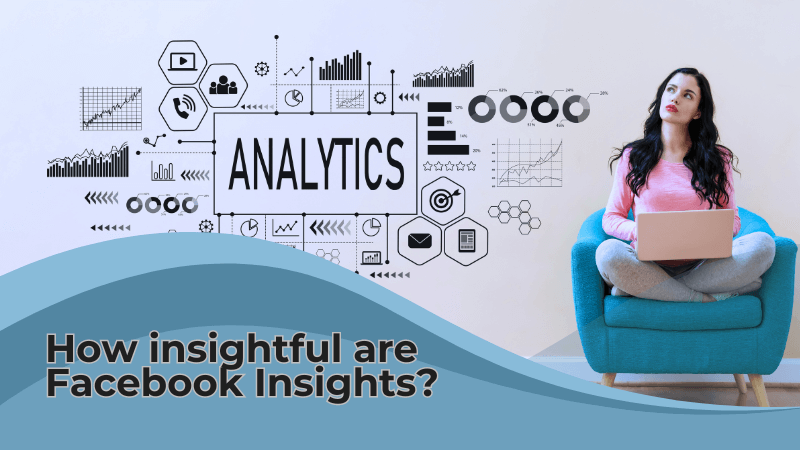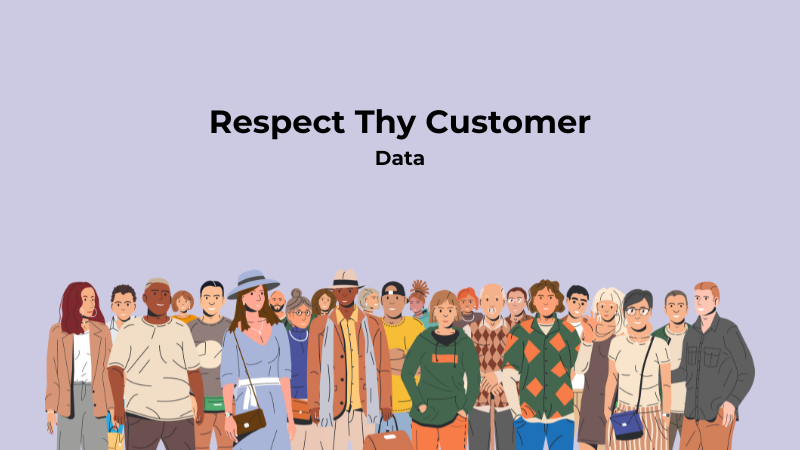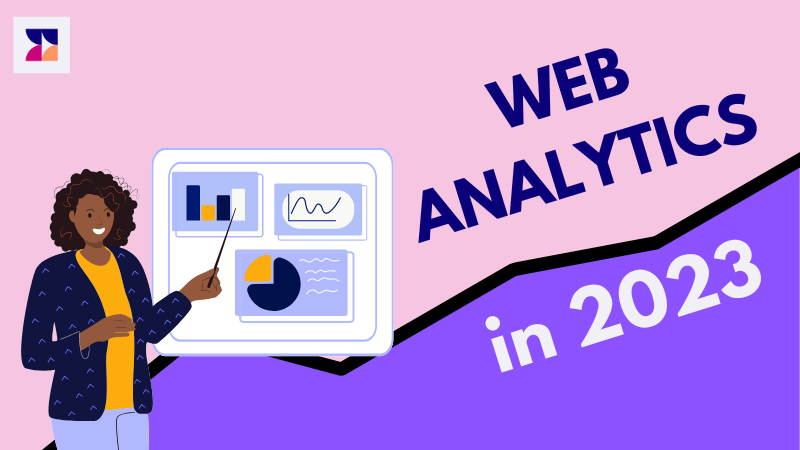With almost 3 billion users, Facebook is the most popular social media platform globally. Building a presence on Facebook gives businesses access to a hoard of potential customers, improving brand awareness, website traffic, customer engagement, leads and more.
However, simply creating a Facebook business profile and throwing your content out there is not enough. To really build success on the platform, you’ll need accurate data insights. This article will show you how.
We’ll answer the questions:
- What does Facebook analytics measure?
- How does Facebook analytics work?
- How can you get more accurate Facebook analytics data?
- What alternatives are there to Facebook analytics?
What does Facebook analytics measure?
Using Meta Business Suite’s Facebook insights, you can view, monitor and download a heap of metrics to aid your decision-making and marketing campaigns. Here are some of the essentials:
- Traffic
- Engagement
- Reach
- Impressions
- When your audience is online
- Audience demographics, including age and gender
- Audience language and location
- Likes
- Follows
- Ad click-through rate (CTR), cost per click (CPC) cost per mille (CPM) and frequency
How does Facebook analytics work?
Where to find analytics on Facebook
You won’t get far if you don’t know where to find Facebook analytics! And just to confuse things, Meta has shaken things up in recent years.
Facebook used to have its own analytics tool. However, in July 2021 this was retired in favour of Meta Business Suite as a part of Meta’s plan to consolidate business profile activities across its platforms.
Now, you can simultaneously manage your Facebook and Instagram accounts, including viewing analytics insights, via Meta Business Suite. Simply login to start exploring its analytics features for free.
Note that Meta’s latest social media endeavour, Threads, is yet to be added to Meta Business Suite. The conglomerate states that Threads is unlikely to be added until 2024 at the earliest.
How to get Facebook page analytics
In Meta Business Suite, click ‘Insights’ on the left-hand side menu.
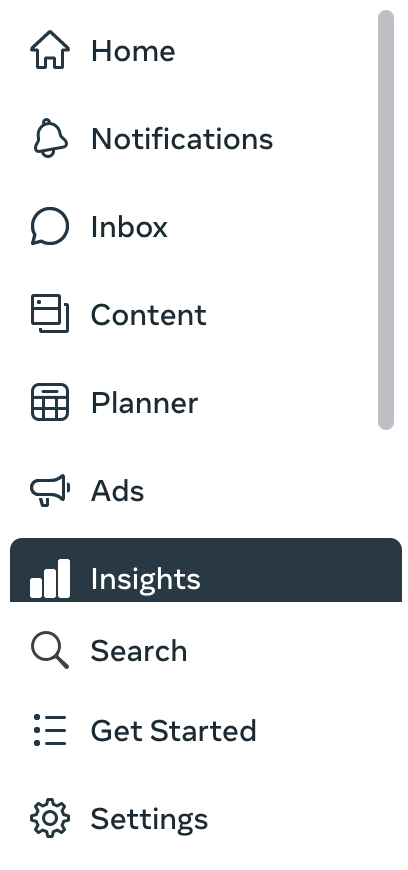
From there, you’ll be taken to the Insights Overview, where you’ll find a breakdown of metrics like reach, interactions, followers, clicks and more.
To take a deeper dive into the numbers, explore the left-hand side Insights menu. There, you’ll find sections for ad trends and spend, audience demographics, competitor activity, top-performing organic content and video earnings.
How to get a Facebook analytics report
If you need to download any Facebook data as a report for deeper analysis, client presentations, internal decks, or anything else, Meta Business Suite allows you to easily pull Facebook analytics data in CSV, PDF or PNG format.
At the top of each section of Meta Business Suite insights, you’ll see an Export button to click and select the format you require.
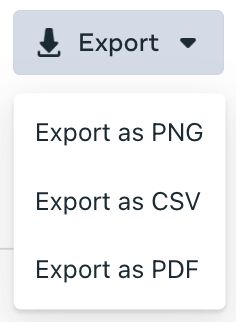
How can you get more accurate Facebook analytics data?
Facebook’s native analytics doesn’t measure everything. And it isn’t entirely accurate, either. Often, data is skewed for various reasons:
- Older data is not always accessible.
- Total reach might not always equal the exact sum of organic and paid reach. This is because the unique impression values are calculated independently, inflating the final number.
- Facebook calculates reach data in 1-day, 7-day and 28-day ranges. This can skew the numbers if a user is reached multiple days in a row: subsequent visits would be counted in a 1-day report, but not in a 7-day report.
- Facebook pages need 100 likes or more for you to access data around total likes by audience location or demographics.
- Facebook’s pixel tracking is limited when used across multiple websites and may not be able to track users as they move between domains.
For marketers and analysts seeking the most accurate insights, using link tracking parameters, or UTM parameters, in third-party analytics software is an effective workaround for Facebook’s in-built analytics deficiencies.
UTM parameters are additional pieces of information added to URLs to identify and help analyse the performance of your links, including those from Facebook ads.
Here’s an example of a link tracking parameter:
https://wideangle.co?ref=facebook-post
The underlined section after the question mark indicates that the user was referred to the website from Twitter.
This is a simple example. UTM parameters can be far more adaptable than this, with customisations to track the user source and medium, paid ad keywords, content pieces and other so-called “trigger” metrics (for example, the specific call to action button a visitor clicked.)
Facebook analytics alternatives
Meta Business Suite offers a free and simple way to access Facebook analytics data. Instantly available to any Facebook business profile owner, it can give you a good overview of your page performance metrics.
However, what you gain in simplicity and ease is negated by a lack of reporting accuracy (never mind Meta’s notorious disregard for privacy!)
Using a third-party analytics platform in combination with customisable link tracking parameters is the best way for tech-savvy marketers to gain the accurate Facebook analytics insights they need.
You’ll be able to accurately observe how users transition between your Facebook profile, posts and ads and your website, with the reassurance that Meta isn’t skewing (or abusing) any data.
Wide Angle Analytics’ mission is to provide accurate website analytics while never compromising on end-user privacy. Get a 360° view of your website traffic and monitor campaign results, including from social media, while remaining 100% GDPR compliant.
Try it for yourself — our free demo account page is instantly accessible to anyone. No email collection, and no pushy sales call — just click the link here to get started.
1 Lauren Meredith is a seasoned content marketing strategist and writer helping online businesses connect with their audience and maximise organic success. Her SEO content secures #1 positions on Google, features in publications such as The Independent, Yahoo and academic domains, and has won an award at the Digital Growth Awards. ::
